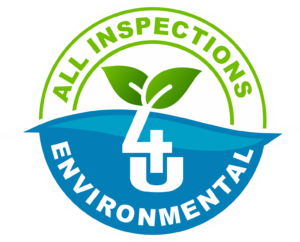Elevation Survey Certificates

AVAILABLE SERVICE IN MIAMI, BROWARD & PALM BEACH COUNTIES
What Is an Elevation Certificate?
An elevation certificate is a document that lists a building’s location, lowest point of elevation, flood zone and other characteristics, according to the Federal Emergency Management Agency (FEMA). It is used to enforce local building ordinances and to help determine flood insurance rates.
WHEN DO I NEED AN ELEVATION CERTIFICATE?
If your property is considered high risk of flooding, you’ll likely need to obtain FEMA’s elevation certificate for your property before you can buy flood insurance. The certificate shows how your property’s elevation compares to the base flood elevation on a flood map, FEMA explains. Structures that sit at the base flood elevation are considered to have a 1 percent chance of flooding each year. Your property’s lowest point of elevation is compared to the base flood elevation to help determine its flood risk and how much you’ll pay for a flood insurance policy, FEMA says.
In addition, you will probably need a new elevation certificate if you make significant changes to your property. For example, building an addition or converting a garage into livable space may change your home’s lowest point of elevation and flood risk, according to FEMA.
HOW DO I GET AN ELEVATION CERTIFICATE?
If you’re purchasing a home, you may also want to ask the sellers to give you its elevation certificate, if they have one, or to provide it before your closing, FEMA suggests. Likewise, if you’re building a new home in an area that’s high risk for flooding, the builder may have been required to obtain an elevation certificate, which you can ask them to give you. If yours didn’t, there are other ways you can obtain one.
If your community participates in the National Flood Insurance Program, the floodplain manager at your local municipal office can tell you whether an elevation certificate is already on file there, FEMA says.
Hiring a professional land surveyor to evaluate your property and complete a new or updated elevation certificate is another option, according to FEMA.
WHAT SHOULD I DO WITH MY ELEVATION CERTIFICATE?
If your home is in an area that’s considered high risk of flooding, you’ll probably need to provide your elevation certificate to your insurance agent to get a flood insurance quote.
Remember, not every property needs an elevation certificate. You can look up your property on FEMA’s flood maps to help determine whether your property is in a high-risk flood zone and if you may need an elevation certificate.
Keep in mind, though, that all properties have some risk of flooding, so it may be a good idea to consider buying flood insurance even if you’re not required to. A local agent can help answer your questions so you can determine whether flood insurance makes sense for you.
What is a Property Survey?
You can have your property surveyed at any time, but you will most likely hire a surveyor when you’re buying a home or constructing something. Most mortgage companies require a property survey to make sure the property is worth the amount of money they’re providing in the loan. However, the property survey is not always legally required. Some mortgage companies will be satisfied with title insurance.
A property surveyor will research into the property before they even look at the land. They’ll research the history of the deed and may include a title search. This title search makes sure there are no discrepancies when it comes to who owns the land. All property surveys begin with research into legal descriptions about the land they’ll be surveying and its history. Then, the surveyor will actually go out to the property and sketch out the land, its boundaries, and different elements that make up your property. This is called the fieldwork. After surveying, they will provide a type of map detailing the property’s legal boundaries. The survey will also include a written description of the property, the street address, the location of buildings and adjacent properties, and any improvements a homeowner can make to the land.
A property survey also includes things like rights-of-way and easements. These are elements that detail what to do with shared yards or driveways, or if your neighbor has a right of way to the street or alleyway between your homes.
Why a Property Survey is Important
It may not seem like a big deal for some, but completing your due diligence when it comes to the property survey can save you from making a very costly mistake, like building your home on someone else’s land.
To schedule an inspection, call (954) 802-8524
Call (954) 802-8524
SCHEDULE AN INSPECTION TODAY


